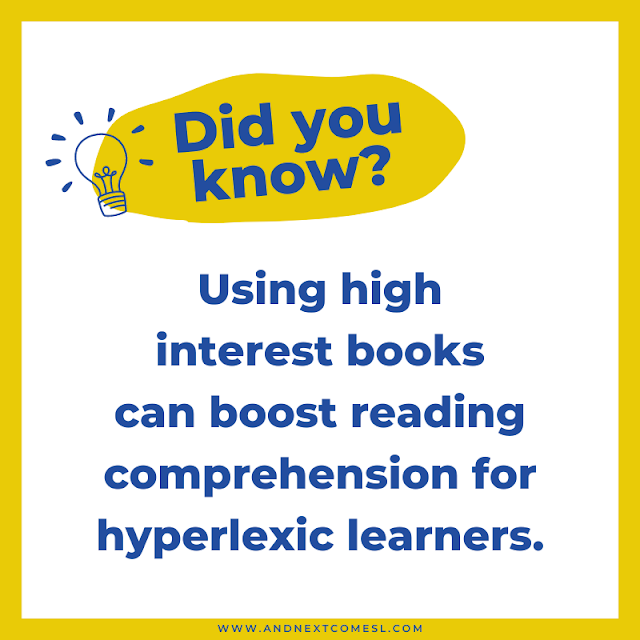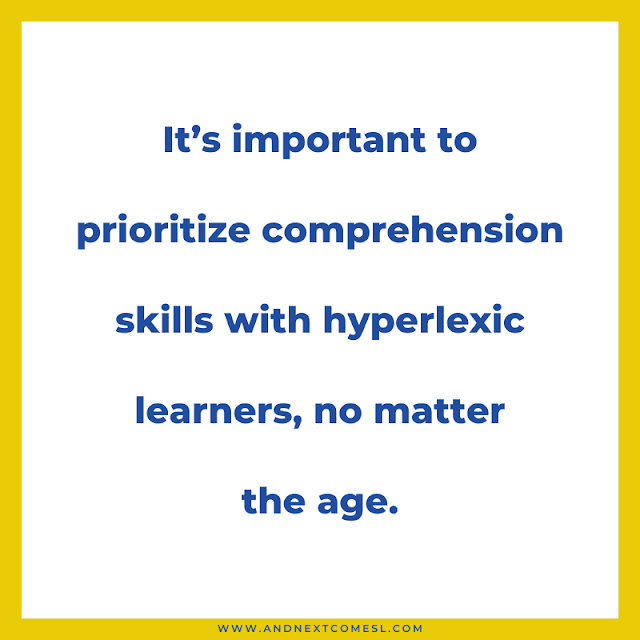We all know that hyperlexic kids can read. It's no secret. It's literally the definition of hyperlexia.
But why is it that some hyperlexic kids just don't like reading books at all?
It's like they suddenly lose all interest in books and avoid reading altogether, which, as a parent, can be confusing and frustrating to see. Especially given how naturally these kids decode the written word.
I know it might be hard to believe that someone who is gifted at reading could actually hate reading. But it is more common than you might think. This case study, for instance, has a quote where a hyperlexic individual describes themselves in this way: "I'm a good reader but I don't like to read and I don't read a lot."
So how or why does this happen exactly?
Well, below we'll dig into the whole my hyperlexic child hates reading thing by discussing why some hyperlexic kids don't like reading and what you can do to help.
Why Some Hyperlexic Kids Don't Like Reading (Even Though They Know How to Read)
Usually when hyperlexic kids lose interest in books and reading, it comes down to one of three things. So here are the reasons why you might notice a decreased interest in reading in your hyperlexic child:
1. Lack of interest or motivation
Some hyperlexic kids might lose interest in books simply because they're not interested in the type of materials or topics being read. That is, they're just not interested in the books currently being offered to them.
And it's awfully hard to be motivated to read something you're not interested in. I've talked more about interest and motivation in reading here (see under point 1).
In her thesis on comprehension in children with hyperlexia, Michele Lester points out that "interest in the reading material has been found to increase children's motivation for learning" and reading. So if your hyperlexic child seems to dislike reading at the moment, then it could be due to a lack of interest in the topic or that they're simply not motivated to read.
Your child might also have a lack of interest or motivation to read simply because they don't see the point of reading. So that might be something to keep in mind as well.
2. Comprehension issues
Another reason why your hyperlexic child might not like reading these days could be due to the comprehension issues that are common to hyperlexia.
In the book Drawing a Blank, Emily Iland writes that, "an obvious drop in [a hyperlexic child's] enthusiasm for reading and a noticeable decrease in the amount of time they spend reading" can indicate that there is a "real weakness in reading comprehension."
So, in this case, you might have to check whether or not comprehension issues could be impacting your child's interest in books and reading.
And another thing to consider is whether or not the books that you are choosing are simply too hard. Comprehension becomes a challenge especially when the books are too difficult. So while a hyperlexic child can decode or read the words on the page, it doesn't necessarily mean that they understand every single word that they read on that page.
3. Anxiety
Iland also highlights in her book Drawing a Blank that, "the [hyperlexic] learner understands that he or she has a problem, but doesn't know how to fix it. Not surprising, the result is often anxiety."
In other words, when hyperlexic kids become aware of their comprehension issues, they often also develop anxiety about these struggles. And this anxiety, in turn, can make it difficult to want to read. I mean we all tend to avoid things that are difficult or stressful, right? The same goes for our kids.
Now, when you pair that anxiety with expressive language delays, you can see why the hyperlexic child might be unsure of how to ask for help. Needless to say, it's sometimes easier just to take the easy way out and just avoid reading altogether instead.
It's also possible that your child's anxiety about reading might have more to do with the fact that reading a book feels completely overwhelming to them. They might get anxious if there are large blocks of text, the book is long, and/or if the pages are visually busy and distracting. It could simply be that certain books are visually overstimulating for them. It's as if the pages cause sensory overload. And if your child has experienced overload due to reading, they might feel anxious about books in general, knowing that overload could happen yet again.
So...What You Can Do to Help When Your Hyperlexic Child no Longer Likes Reading
Now that you have a better understanding of the why behind the decreased interest in reading, let's talk about what you can do to help.
I mean we don't want our hyperlexic child to hate reading considering their gift with decoding written language. Right?
Well, here are some tips and suggestions to try.
1. Provide different types and formats of books
One of the easiest things you can do is simply swap the books your child is reading. Try something new and different.
Instead of using chapter books or novels with large blocks of text that are overwhelming, try graphic novels, comics, and fact books instead. These types of books are often more appealing to hyperlexic kids anyway. Plus, books with speech bubbles can improve comprehension in a lot of ways.
You could also pick books that are less visually distracting. This suggestion is particularly helpful if you know that your child gets anxious and overwhelmed by busy colorful books.
If your child is younger and you want or need some fresh book suggestions, then try this list of the best books for hyperlexic kids. I compiled this list with the help of other parents of hyperlexic children so it's full of hyperlexic-kid approved books.
2. Use high interest books (aka pick books on topics that your child is interested in and prefers)
Remember, you want your child to be motivated to read. And one of the best ways to do that is to lean on their interests and passions. Something you've probably heard me say many, many times around here...
Besides, did you know that using high interest books also boosts reading comprehension? It does! So that's an added bonus.
Now remember those three reasons why some hyperlexic kids don't like reading? Well, using a high interest book will touch on all three of those reasons. They'll be more motivated to read high interest books. They'll have better background knowledge on the topic, which will, in turn, boost comprehension, because it's a topic they know a lot about. And when their comprehension is better, they won't be as anxious about reading that book, which means, they'll be less likely to avoid reading.
3. Pick books that are at or slightly below their comprehension level
Sure our kids can read anything you put before them, but that's not always the best strategy to take here.
Instead of picking books at your child's level of decoding, pick books that are at or slightly below their comprehension level.
Why?
Well, it's important to build up your child's confidence and self-esteem surrounding the comprehension piece. In order to do that though, you'll want to pick something they're not going to get frustrated by or struggle with. Picking a book slightly below their comprehension level is one way to do that.
Building up that confidence and self-esteem can also reduce their anxiety about reading. And I think we can agree that we would want them to feel less anxious about reading and comprehension tasks, which leads me to...
4. Work on improving comprehension skills
Okay, I know this is a big task and not something that can be fixed overnight. But when you can improve comprehension, you will decrease anxiety and boost confidence. Two things that will definitely help motivate your hyperlexic child to read again.
It's so important to prioritize comprehension skills with hyperlexic learners, no matter the age. I cannot emphasize this point enough. That's why you can find plenty of comprehension strategies, printables, and resources here.
5. Teach them how to ask for help
Your hyperlexic child might recognize that they have a problem. However, since hyperlexic kids find language tricky, expressing their concerns about these problems can often be quite difficult for them.
Unsurprisingly, they can be unsure of how to ask for help.
That's why it's important to teach hyperlexic kids how to ask for help and give them the words or phrases that they can actually use to advocate for themselves.
Here are some resources that might be helpful as you teach this skill:
So to recap...
If your hyperlexic child hates reading and you find yourself saying "my child doesn't like to read," then it's quite possible that a lack of interest/motivation, comprehension issues, and/or anxiety might be at play. But thankfully, there are lots of things you can do to help, as I've outlined above.












